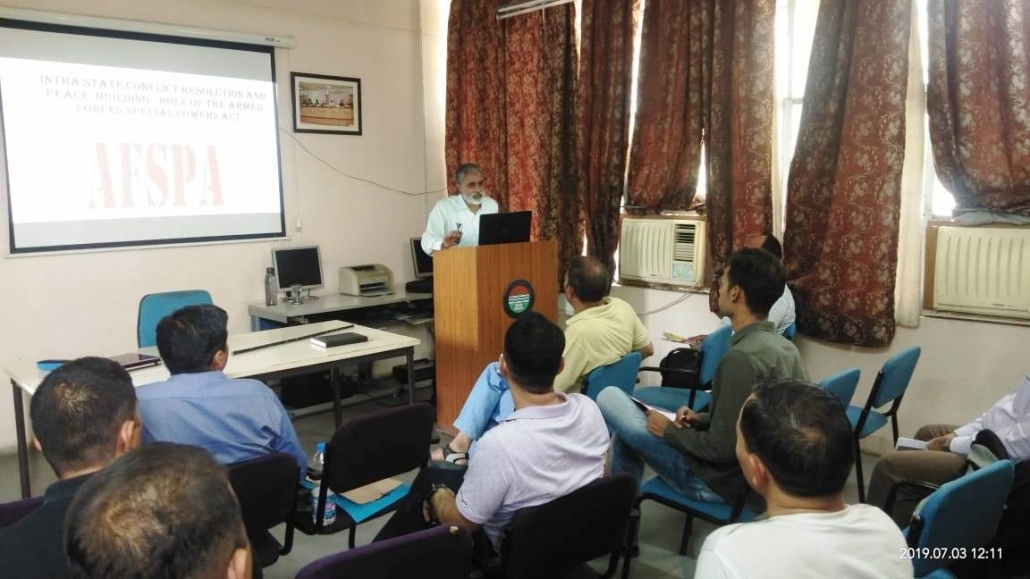Korel, Chandigarh July 3, 2019
The Department of Defence and National Security Studies, Panjab University, Chandigarh organised a special lecture on the topic “Intra State conflict resolution and peace building – Role of the Armed Forces Special Power Act” by BRIG D S SARAO (Retd.) here today. Brig D.S. Saraois a military and strategic affairs analyst. He has done his bachelor and master degrees in the legal studies. His prowess with the legal studies enabled him to give insight into the legal provision of the Armed Forces Special Power Act (AFSPA).
He broadly covered all the aspects of the AFSPA including its genesis, meaning and its various legal provisions, requirements and areas currently and in past that fell under this provision. The AFSPA was firstly implemented in the seven sisters of the North-East India including Assam, Manipur, Tripura, Meghalaya, Arunachal Pradesh, Mizoram and Nagaland on September 1, 1958 to quell the secessionist movement in the region. Punjab and Chandigarh also fell under the preview of this Act during militancy in Panjab state but was later withdrawn in 1997. AFSPA was applied in the state of Jammu and Kashmir in 1990 and has been in the force since then.
He stressed that Armed Forces is the last resort in the hand of the central government to resolve the intra state conflict and build peace. The primary purposes and missions of the Indian Armed Forces are national security, territorial integrity and safeguard our countries from the external threats. They are only deployed in intra state conflicts when State police and para military forces are not able to control the situation and the area is declared disturbed by the State or the Central Govt. AFSPA has the special provisions to assist the Armed forces conducting its operations and missions. Without the AFSPA, they would be handicapped to perform their duties assigned in the extraordinary situations.
He called for the faith in the Indian Armed Forces, who are well trained, disciplined, organised, educated and having robust command and control system in place. They have shown their capacity and capabilities to operate effectively under the ambit of the AFSPA. Any dilution in the act would result into the compromise with their operational capabilities to deal with danger against the national security. This could result into the dangerous consequences to the nation.
The lecture was attended by faculty members, serving and retired armed forces officers pursuing various courses in the department, research scholars and students. The lecture was followed by a questions and answers session with the audience.




